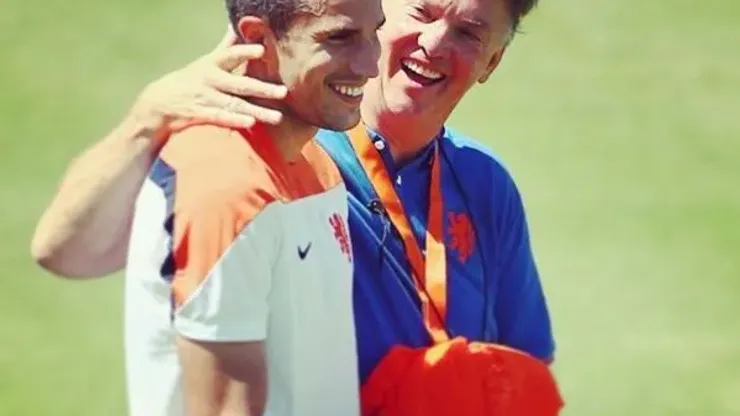In the 2010 World Cup, Netherlands went with the intention of playing winning football. Tired of the “beautiful defeat,” the squad set out on a mission to do what was necessary to win and ended up within an inch of claiming the ultimate prize.
This time, Louis van Gaal has implemented a new system to much debate (nowhere are systems debated more than in Holland although England is getting there).
How would this work? It’s not our tradition! What if this happens, what if that happens?
The result against Spain showed that if this had happened — David Silva ruthlessly finishes off an attacking move instead of a subtle chip, then Louis van Gaal is lambasted as an eccentric who tried to force a foreign system on a group of players at a major tournament.
If this happens — Robin van Persie scores a goal of such beauty at exactly the right time of the game to give Holland such a mental and physical injection that they blow away one of the all time great football sides and Van Gaal is lauded as a master tactician.
Systems and formations take their place alongside chances and opportunities – they are all thrown into the mix and what comes out is this wonderful game that thrills and mesmerises.
Louis van Gaal is old enough and wise enough to know the fine lines that decide winners and losers.
He knows that when you win, you are still not quite as good as you think you are and when you lose you are probably not quite as bad as you think you are.
The Dutch go into the Round of 16 with a new belief (I fancy them to get to final) but also with a coach who knows that whatever system he chooses will be subject to the one law of football that no system can master – that the ball is round and controlled by humans.
Editor’s note: Mark Burke is an English former footballer who played as a midfielder. A player skilled at retaining the ball, he enjoyed a 15 year professional career in England, the Netherlands, Japan, Romania, and Sweden. He played for clubs including Aston Villa, Rapid Bucharest, Middlesbrough, and Wolves.
200+ Channels With Sports & News
- Starting price: $33/mo. for fubo Latino Package
- Watch Premier League, Women’s World Cup, Euro 2024 & Gold Cup
The New Home of MLS
- Price: $14.99/mo. for MLS Season Pass
- Watch every MLS game including playoffs & Leagues Cup
Many Sports & ESPN Originals
- Price: $10.99/mo. (or get ESPN+, Hulu & Disney+ for $14.99/mo.)
- Features Bundesliga, LaLiga, Championship, & FA Cup
2,000+ soccer games per year
- Price: $5.99/mo
- Features Champions League, Serie A, Europa League & Brasileirāo
175 Premier League Games & PL TV
- Starting price: $5.99/mo. for Peacock Premium
- Watch 175 exclusive EPL games per season






